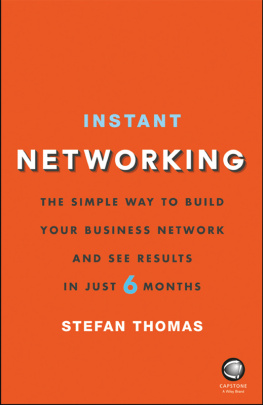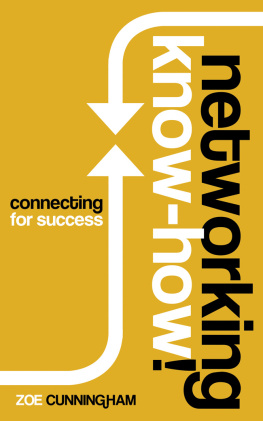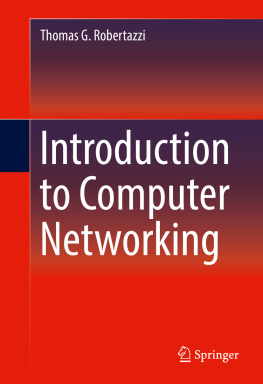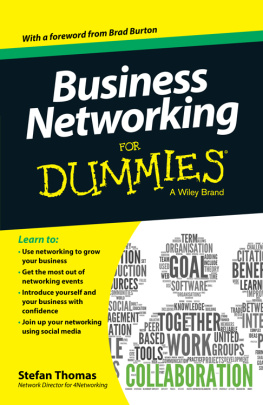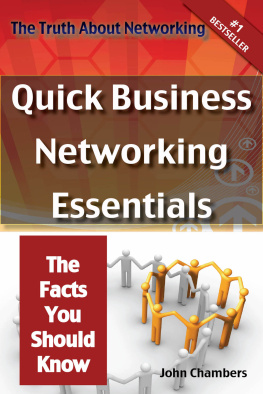
This edition first published 2016
2016 Stefan Thomas
Registered office
John Wiley and Sons Ltd, The Atrium, Southern Gate, Chichester, West Sussex, PO19 8SQ, United Kingdom
For details of our global editorial offices, for customer services and for information about how to apply for permission to reuse the copyright material in this book please see our website at www.wiley.com.
The right of the author to be identified as the author of this work has been asserted in accordance with the Copyright, Designs and Patents Act 1988.
All rights reserved. No part of this publication may be reproduced, stored in a retrieval system, or transmitted, in any form or by any means, electronic, mechanical, photocopying, recording or otherwise, except as permitted by the UK Copyright, Designs and Patents Act 1988, without the prior permission of the publisher.
Wiley publishes in a variety of print and electronic formats and by print-on-demand. Some material included with standard print versions of this book may not be included in e-books or in print-on-demand. If this book refers to media such as a CD or DVD that is not included in the version you purchased, you may download this material at http://booksupport.wiley.com. For more information about Wiley products, visit www.wiley.com.
Designations used by companies to distinguish their products are often claimed as trademarks. All brand names and product names used in this book and on its cover are trade names, service marks, trademark or registered trademarks of their respective owners. The publisher and the book are not associated with any product or vendor mentioned in this book. None of the companies referenced within the book have endorsed the book.
Limit of Liability/Disclaimer of Warranty: While the publisher and author have used their best efforts in preparing this book, they make no representations or warranties with respect to the accuracy or completeness of the contents of this book and specifically disclaim any implied warranties of merchantability or fitness for a particular purpose. It is sold on the understanding that the publisher is not engaged in rendering professional services and neither the publisher nor the author shall be liable for damages arising herefrom. If professional advice or other expert assistance is required, the services of a competent professional should be sought.
A catalogue record for this book is available from the Library of Congress.
A catalogue record for this book is available from the British Library.
ISBN 978-0-857-08675-4 (paperback), ISBN 978-0-857-08676-1 (ebk)
ISBN 978-0-857-08677-8 (ebk)
Cover design: Kathy Davis/Wiley
Cover letters: Kanate/Shutterstock
Why instant networking?
When people think of networking they often think of a room full of people introducing themselves to each other and going through the ritual of exchanging business cards. You probably picture everyone wearing a suit.
It's likely that expressions such as elevator pitch and referrals come to mind when you picture what networking looks like. It's likely that you think about shaking hands with lots of people and making small talk.
What networking really is though (for me at least) is a set of activities designed to grow one's personal network, add people to your address book, have more people that you can pick up the phone to and that isn't a cold call.
Networking events, in the small business, entrepreneur, professional and corporate world, are a huge part of the networking activities I refer to. But they are only one part of what networking actually means in the early part of the 21st century. There is a whole lot more that you can (and in my opinion should) be doing to accelerate the growth of your network and decrease the time it takes people to either decide to do business with you or consider you for a position in their organization.
I get asked all the time what is the point of networking? After all, at the time of publication in 2016, the online opportunities to promote oneself, not least through LinkedIn, Facebook, Twitter, Periscope, Blab, blogging and other platforms, are massive. But in my opinion, this is all part of the networking activities I referred to earlier. Networking is not just the semi-formal, ritualized exchange of the business card over breakfast. Networking is everything that you do to grow your network of contacts, while strengthening as many of those relationships as you can. Networking is the opportunity to take people who are on the very fringes of your network (for example, someone you have only met once at an event) and move that relationship forward to the extent that you trust each other and would do business with each other.
Networking, done right, speeds up the process by which people get to know, like and trust you.
Networking skills are for life, not just for breakfast
I sometimes think that a lot of people feel that networking is somehow separate to their other business activities. That the skills involved in networking aren't something you need to bother about unless you go to networking events. But I truly believe that the skills you develop in networking are essential in other parts of your career or business, and that networking is actually a pretty safe environment to develop those skills.
Much of what you do to either market your business or market yourself is designed to start a conversation.
When I was an estate agent, we advertised in the Oxford Times every week in order to try to start a conversation with the people who might want to buy or sell a house. Pre-internet the adverts were really an invitation for people to call us or call into our offices and talk to us.
Learning to get better at networking is actually about learning to get better at those conversations, and particularly how to engage and how to drive conversations if you want to do business with someone.
Learning to be better at networking is learning to be better at those conversations. You should actively set out to get better at networking, to sometimes use the networking environment counterintuitively and to use it in ways that other people don't. If you actively do that, you are also working on the skills that help you to improve your engagement, conversation and sales skills. Think about a very simplified sales process:
- You start a conversation
- You establish, either quickly or over time, whether the person may be interested in your services
- You introduce your services to them
- You ask them if they want to buy
Networking, used right, is a fantastic environment to learn, develop and hone these skills. Much of the value I have had from networking has been having the opportunity to develop my sales technique and process in a safe environment, over a period of time.
I talk a lot about networking skills, and I wonder if people think that it doesn't apply to them, because they don't go networking. But it does. And they do.
You can't squeeze an onion online
Something that people ask me a lot is whether online networking and social media will mean that there is no need for face-to-face networking in the future. Whether business networking has, will or should move completely online.
I'm a member of lots of online forums and this question comes up very regularly: whether face-to-face networking is dead in a social world. Typically, it's a conversation I regularly start because I'm interested in people's opinions.
Overwhelmingly, people from all professions, trades and industries still choose to meet people. Despite all of the technological advances there have been, people still want to press the flesh and shake hands with someone before they do business with them; it seems as though we are hardwired that way. In fact someone recently commented that if they absolutely can't meet one of their networking contacts, mainly due to geography, then they will Skype or FaceTime them. They went on to say that even in these instances, where they can be virtually in the same room with someone, it just isn't as good as physically being with them in person. Those small nuances of body language and facial expression are lost even when we can see someone in glorious 1080p HD.
Next page
